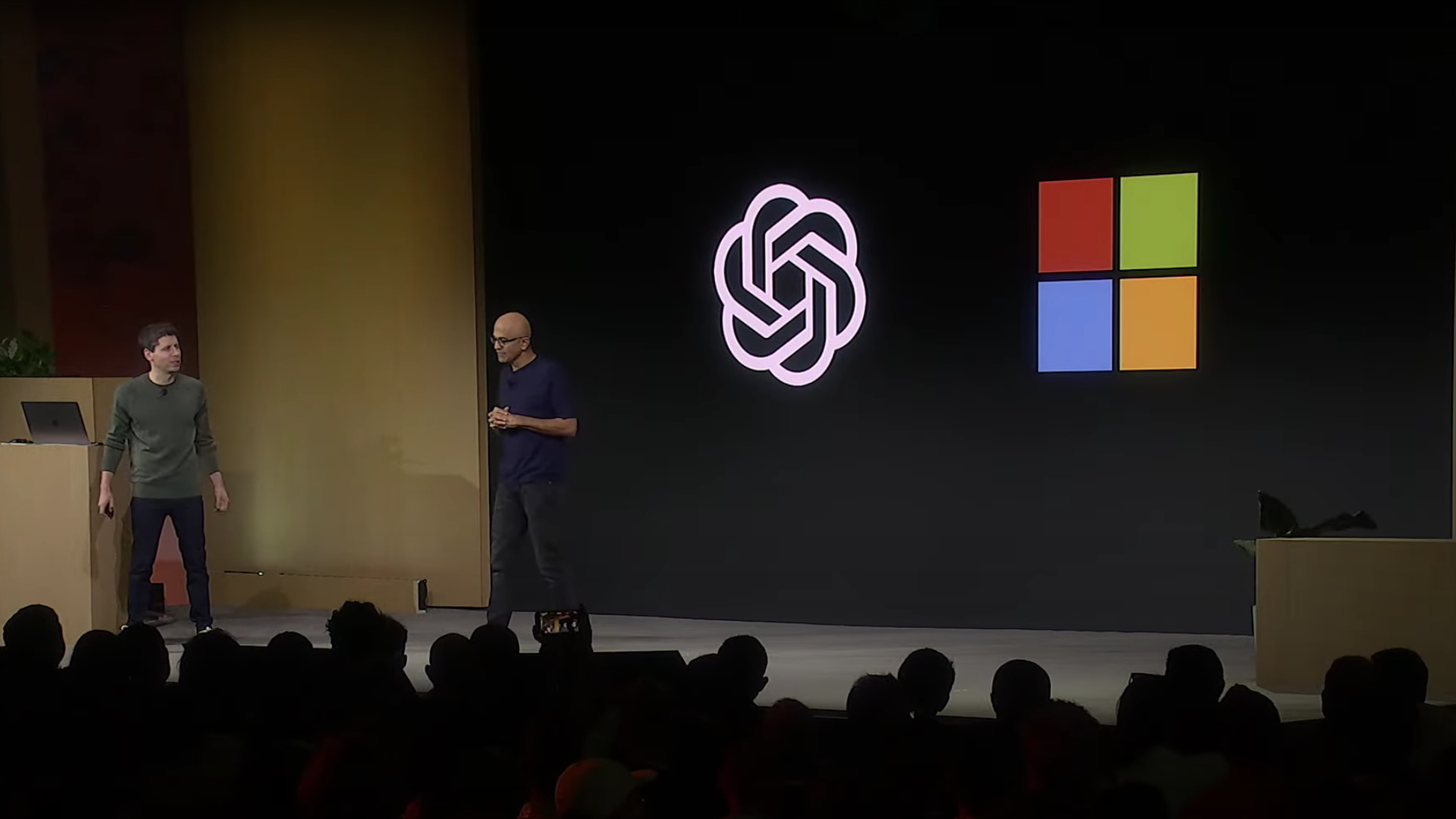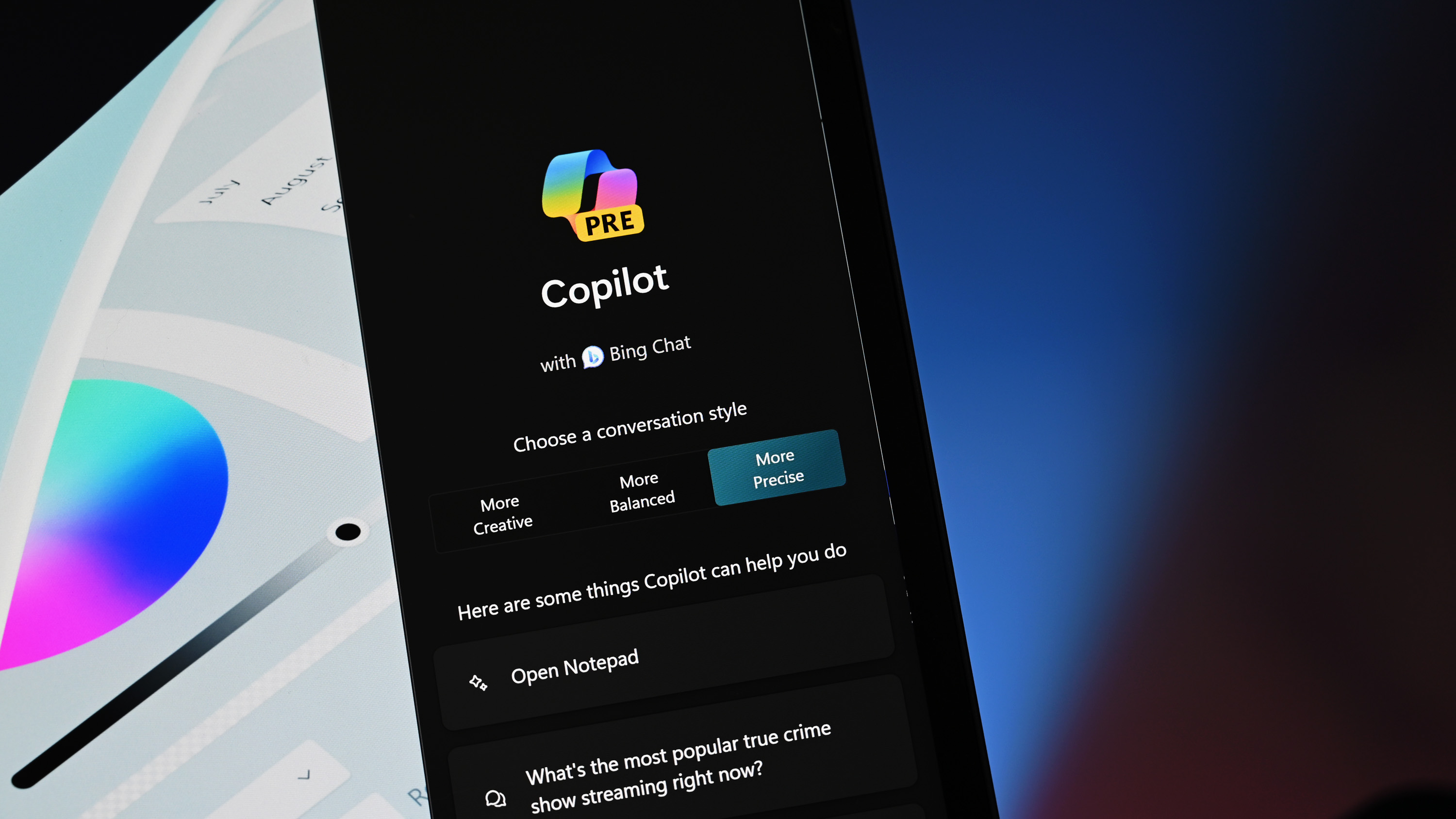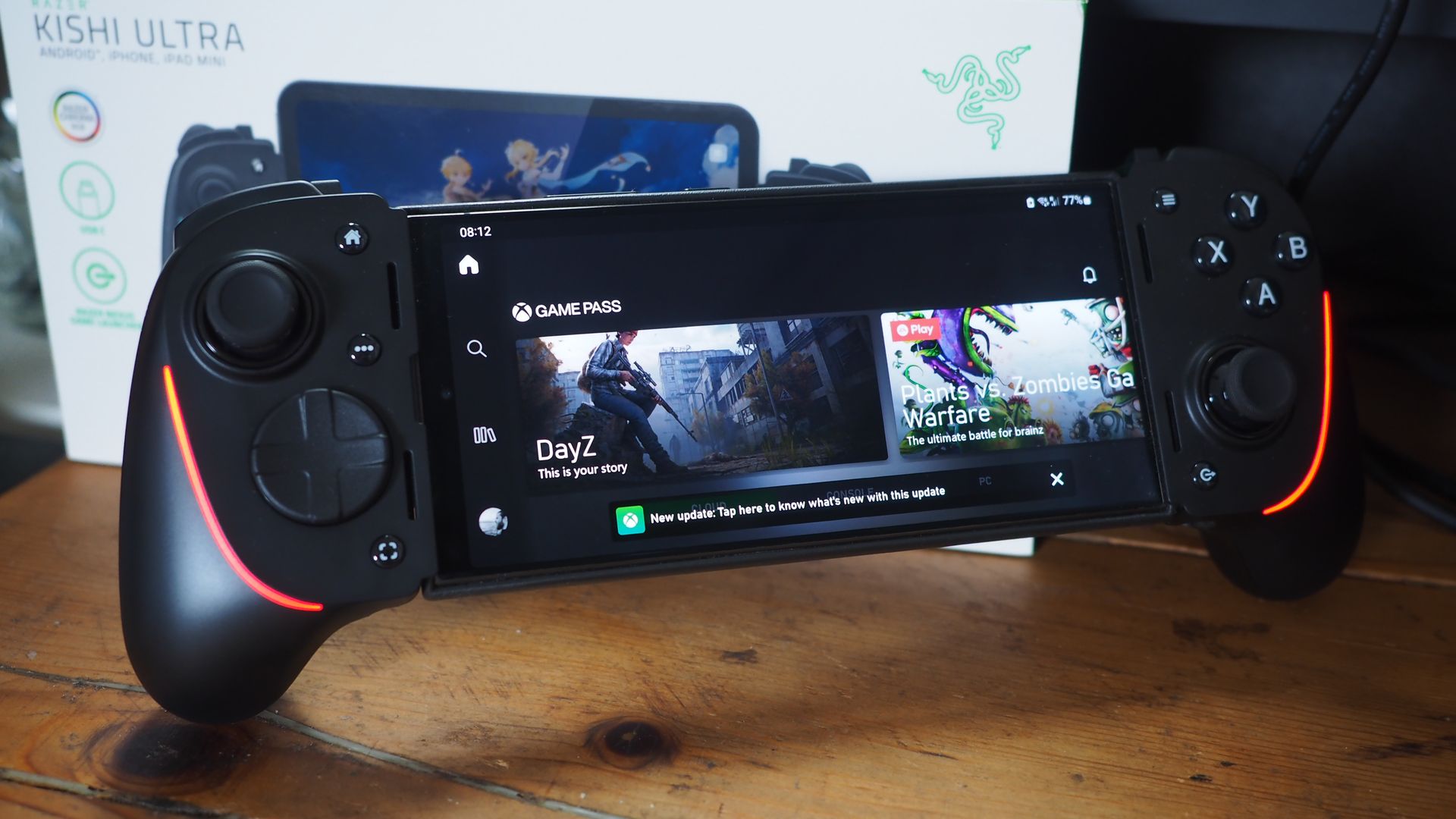Microsoft looks to make Copilot invulnerable by lessening its reliance on OpenAI's ChatGPT
Microsoft has been making moves over the last few months to improve Copilot's resilience against competitors.
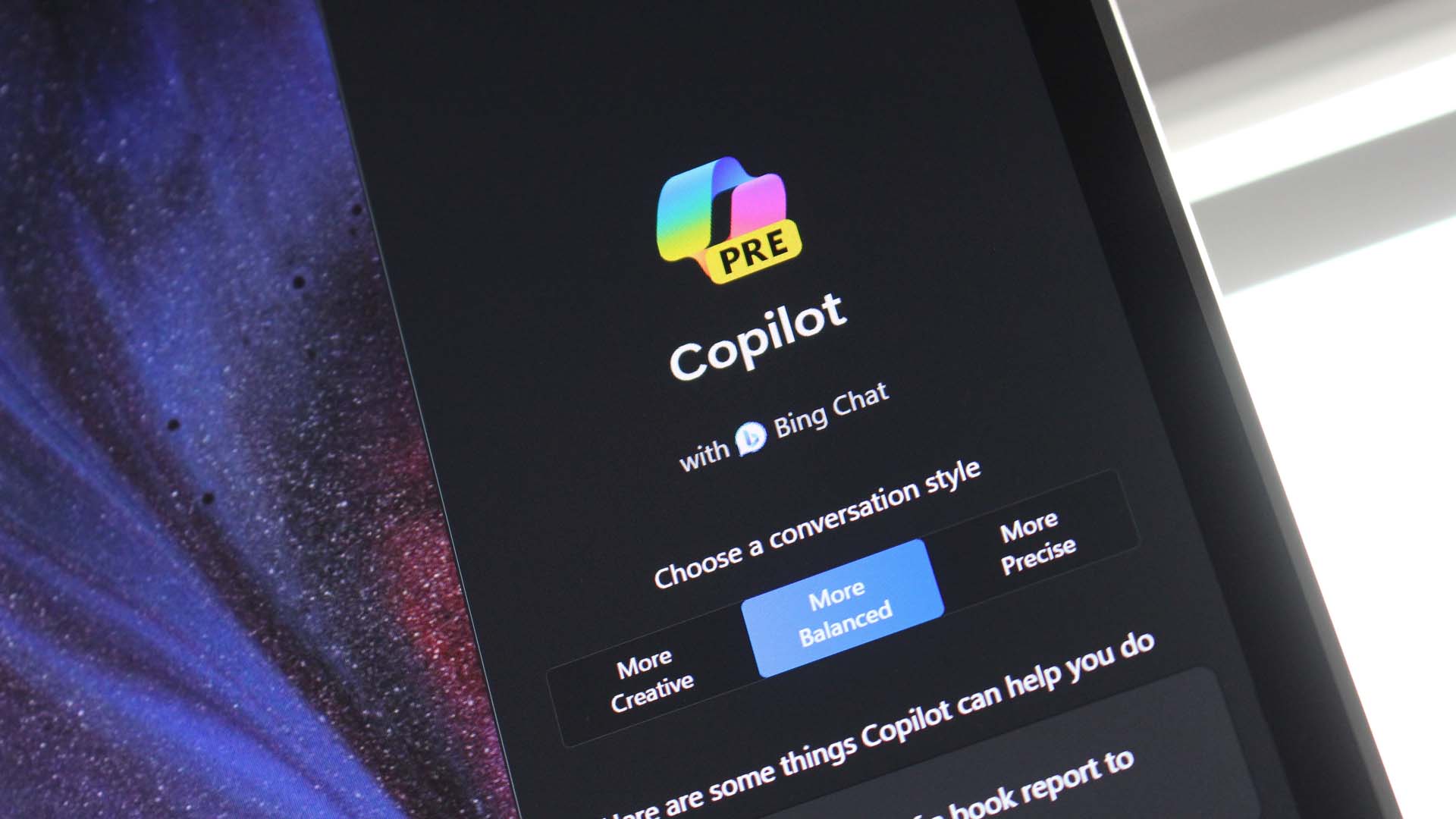
All the latest news, reviews, and guides for Windows and Xbox diehards.
You are now subscribed
Your newsletter sign-up was successful
While Microsoft appears to be the clear leader right now in the AI market, the company is taking actions to protect its lead, and some of those are a bit surprising. It's impossible to credit Microsoft for its AI success alone, OpenAI has been an integral partner in building and improving Microsoft's position in the emerging AI landscape.
Recent efforts by Microsoft seem to show that Microsoft isn't feeling safe with the current status quo, and while they appear to be happy with the current partnership with OpenAI, Microsoft is making quiet moves to inoculate itself from potential upheaval at OpenAI in the future. So why is Microsoft worried about the future of OpenAI, and what can they do to protect Copilot's future in the marketplace?
Why does Microsoft have an OpenAI problem?
Microsoft seems to be determined to protect its future by any means necessary. The OpenAI debacle that took place in November 2023 seems to have shaken the tech giant's faith in its AI partner OpenAI. In a surprise Coup d'état, OpenAI's board ousted the CEO Sam Altman, causing Satya Nadella to have to face the harsh consequences of betting most of his company on a single entity. Luckily for Microsoft, the shocking moves were made on a weekend, and by Monday morning Satya Nadella was able to patch up the situation and save the company's stock from nosediving.
Even though that situation was resolved to the benefit of Microsoft, it was likely a shining example of an Achilles Heel that the C-suite at Microsoft needed to remedy post-haste. While the plans to push Copilot to more back-end LLMs and hardware-based AI models were likely always there, I find it hard to believe that these plans were hastened as a result of the near-catastrophic events that took place at OpenAI.
The AI situation at Microsoft reminds me of how Microsoft Gaming's CEO Phil Spencer has taken to solving Xbox's woes, namely by purchasing ZeniMax Media and Activision Blizzard King, which have so much developer talent and IP that the gaming division won't need to be reliant on any 3rd party to ensure its future success.
In a similar vein, it seems that the team behind Microsoft's AI division is determined to ensure that Copilot can survive without OpenAI if necessary. While it's hard to find any actual press releases where Microsoft publicly states they are shifting to other options outside of ChatGPT, you can find proof of this in the documentation for Azure AI Studio.
Can I use models other than ChatGPT in Azure AI Studio? Yes. Azure AI Studio includes a robust and growing catalog of frontier and open-source models from OpenAI, Hugging Face, Meta and more that can be applied over your data. You can even compare models by task using open-source datasets and evaluate the model with your own test data to see how the pre-trained model would perform to fit your own use case.
Microsoft
We can't forget as well that the issue of copyright infringement in regard to these AI models is still up in the air. Microsoft has stated that end-users should be held liable for copyright infringement, but many lawsuits, currently pending, disagree with that interpretation of the law. If a court or the US Patent Office decides that OpenAI's ChatGPT has been violating copyright law, that could be a huge issue for both OpenAI and Microsoft.
All the latest news, reviews, and guides for Windows and Xbox diehards.
How can Microsoft create a moat around Copilot?
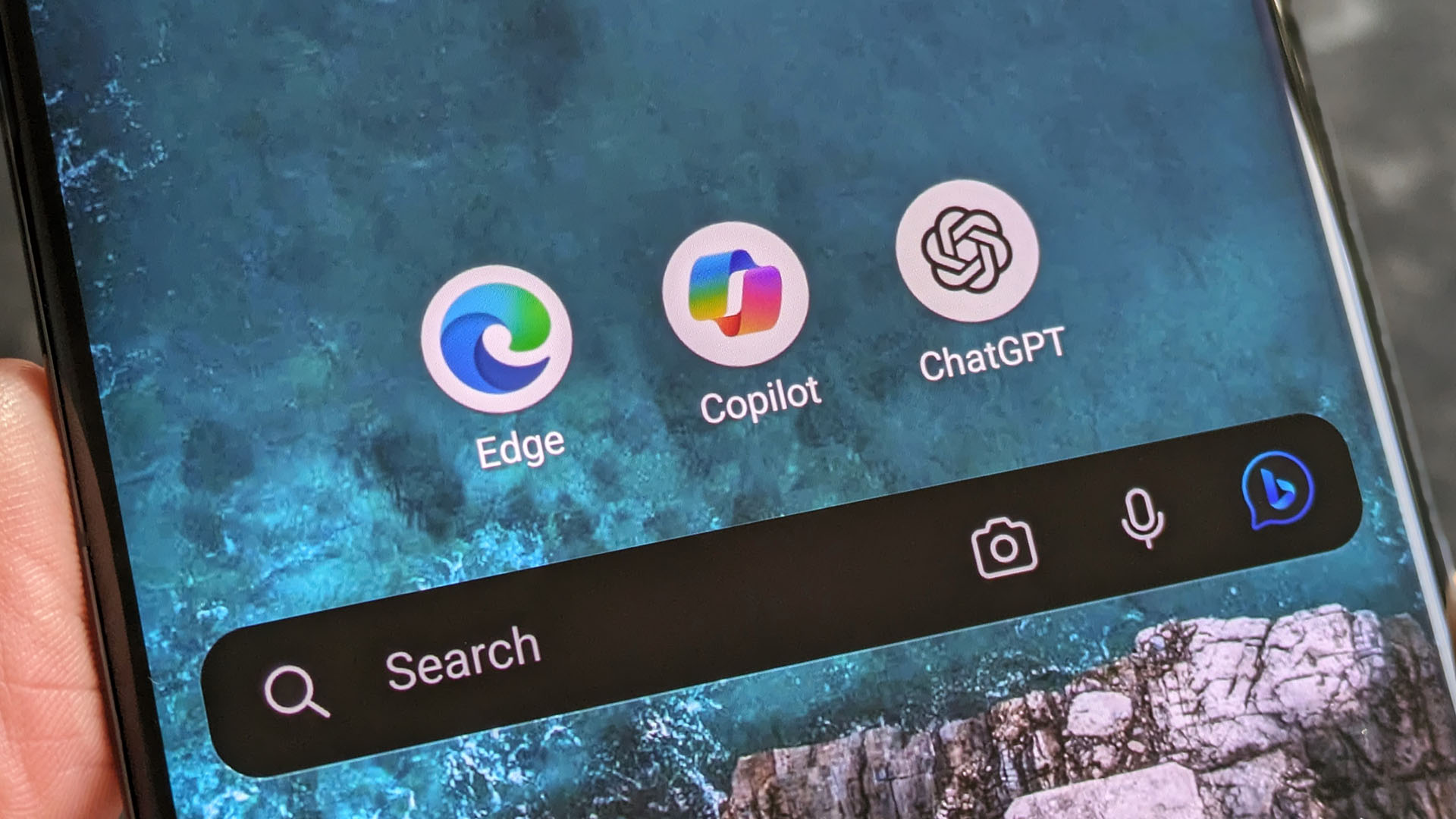
If you weren't paying attention during CES at the beginning of January, you might have missed that AI was the main topic of conversation. From Microsoft powering the new Sony Honda Mobility, to most new laptops coming with the new dedicated Copilot button on the keyboards, AI was discussed during nearly every keynote.
There has been a significant shift to putting dedicated AI hardware into upcoming PCs, mostly through a new chip called an NPU. Qualcomm sent waves through the PC universe announcing its first Windows chip, the Snapdragon X Elite, which will have a dedicated AI NPU. We can expect to see more and more computers from silicon manufacturers to include hardware-based AI capabilities. NVIDIA's leaning into AI-capable GPUs has greatly boosted the company's stock prices, and every other company that has pushed toward AI has, so far seen great returns on that investment. Due to this, I think AI computing will continue to shift to more hardware-based solutions to help alleviate so much dependence on data centers.
Microsoft continues to develop its own in-house AI models, with Phi-2 released a few months ago. While Microsoft is calling this a small language model, it still has the potential to offload some of the reliance on ChatGPT if necessary and seems to be a dependable solution for normal AI tasks.
We are now releasing Phi-2, a 2.7 billion-parameter language model that demonstrates outstanding reasoning and language understanding capabilities, showcasing state-of-the-art performance among base language models with less than 13 billion parameters. On complex benchmarks Phi-2 matches or outperforms models up to 25x larger, thanks to new innovations in model scaling and training data curation.
Microsoft
Finally, as discussed, Microsoft is looking for ways to integrate more open-source LLMs into Copilot. Developers for different applications may be able to build out the backend of Copilot with the exact AI model they want, and the end-user won't know if Copilot is running off of OpenAI or some other AI model.
What does the future of Copilot look like?
Satya Nadella took to X (Twitter) to wrap up AI in 2023. If this video doesn't highlight how important AI is to Microsoft and Satya Nadella, I'm not sure what can. Give it a watch and notice how OpenAI's ChatGPT is only mentioned as a last thought. I expect to start seeing Microsoft distance itself more and more from OpenAI.
The pace of AI innovation in 2023 was astounding – but even more impressive was how people applied this technology to make a real difference in their careers, communities, and countries. Here are some of my favorite examples. pic.twitter.com/78l9mhMUFxDecember 14, 2023
It's hard to look at the current situation between Microsoft and OpenAI and not think about a successful person who went through all of the hardships with their spouse, only to start looking for somebody on the side once they finally make it to the top. Microsoft seems completely open to continuing to use its exclusive rights to OpenAI's AI infrastructure but seems to be "walking out" a bit on the partnership.
I think the intentional distinction being made between Copilot and ChatGPT is a smart move by Microsoft. With the several ongoing lawsuits from the New York Times, and non-fiction authors suing Microsoft and OpenAI for copyright infringement, there is a chance that Microsoft might have to break ties or lessen its reliance on ChatGPT if found to be liable for the alleged infringement called out in those lawsuits.
Microsoft wants to make Copilot synonymous with AI and become to AI what Kleenex is to facial tissues. Right now, though, Copilot seems to be playing second fiddle to ChatGPT in terms of online footprint and overall popularity. The decision to integrate Copilot into Windows 11 and to start opening Copilot on some displays by default can go a long way in helping to increase mind share for Copilot, but for most end users there still isn't that 'killer app' or real use case that makes AI worth the time to use it.
Technology, Including AI, is ultimately just a tool. It's a means, not an end and our end remains our mission to empower every person and every organization to achieve more.
Satya Nadella
The hope is that over the next year, Copilot's integration into everything Microsoft 365 will let users feel a difference in productivity and make workflows easier at the enterprise level. If that can trickle down to consumers as well, Microsoft will have a good foothold to start giving Copilot the brand recognition they are striving for.

Colton is a seasoned cybersecurity professional that wants to share his love of technology with the Windows Central audience. When he isn’t assisting in defending companies from the newest zero-days or sharing his thoughts through his articles, he loves to spend time with his family and play video games on PC and Xbox. Colton focuses on buying guides, PCs, and devices and is always happy to have a conversation about emerging tech and gaming news.
